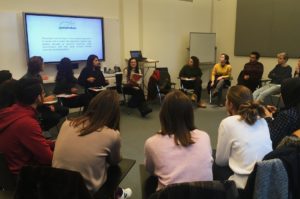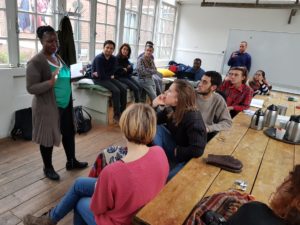Lectures offered to the Peace Envoys at the Rotterdam boot camp:
International Migration, Dr. Şebnem Köşer Akçapar, Koç University
Professor Akçapar delivered a lecture on the sociological context of international migration. She explained the main causes of migration and how countries plan to overcome the migration-based issues by integration. She also discussed the situation in Turkey through the Syrian refugee crisis, and how it is handled by the Turkish Government. She concluded with how governments and policymakers should act to provide a better environment for global migration. Through this lecture the Peace Envoys have gained theoretical knowledge on the past and present of international migration.
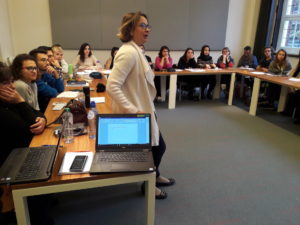
Migration Law and Politics, Phyllis K. Livaha, Erasmus University Rotterdam
The main emphasis of this lecture was the relation of migration to law and politics. First some fundamental definitions such as “refugee”, “asylum”, “expat”, “internally displaced person” etc. were covered. Then, migration as a movement was analysed in great detail including movements within a country and movements between different countries. Some social and economic factors called “push-pull factors” were defined and discussed. The lecture explained how the concept of migration was correlated to the concept of human rights, and criticized how the policies of countries were made to keep migrants outside of their borders. In order to better understand legal infrastructure, the 1951 Refugee Convention was covered and explained how some of its articles have big gaps in terms of respect to human rights.
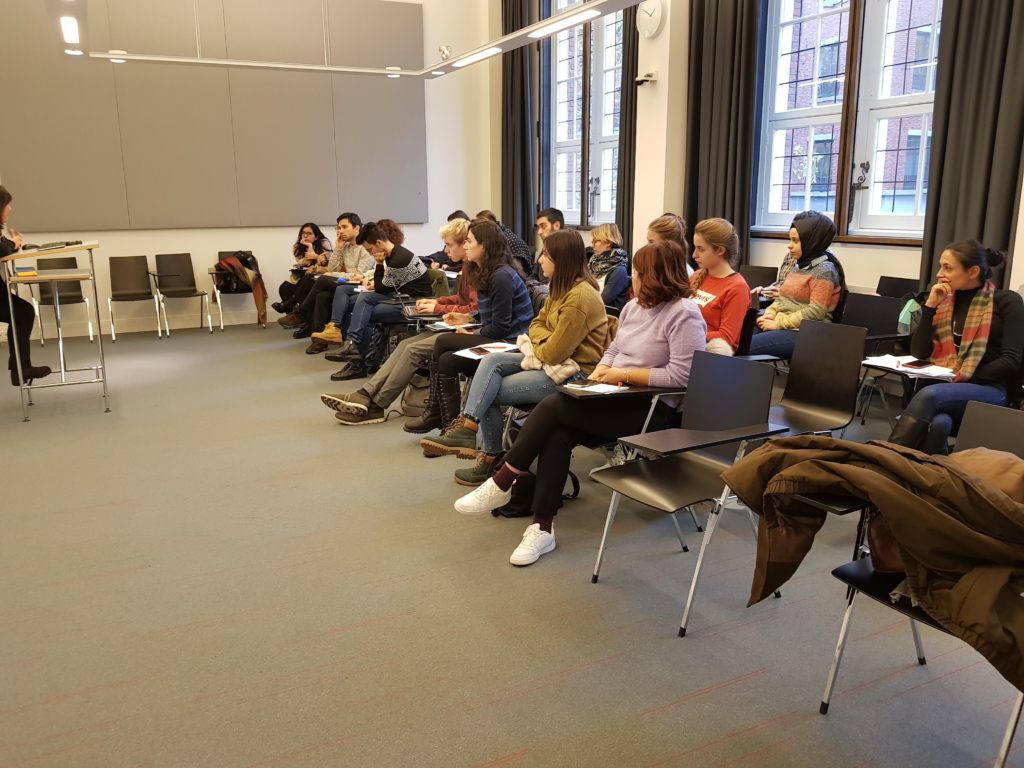
Forming and Reducing Prejudice toward Minority Groups, Prof. Dr. Monica Rubini, University of Bologna
This lecture gave the students insight about the roots of prejudice. It explained how the general people of a country tend to become united in finding the migrants as a common enemy stealing their jobs and resources. The dehumanization of migrants was a factor leading to hateful actions and thoughts toward migrants, without feeling guilty about hurting them. The lecture explained that this causes the people to not feel empathy towards the migrants’ pain and need for security or a better life. The lecture also defined stereotypes and how stereotyping works in society, and elaborated on how social stereotypes are actually a form of social myths. The difference between the often confused concepts of prejudice and stereotypes was clarified.
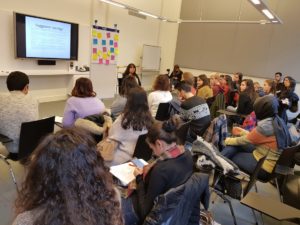
Project cycle management and examples, Dr. Simge Akbaş, Gaziantep University
This lecture was about “Project Cycle Management (PCM)”. It explained the phases of a Project; programming, identification, formulation, implementation and evaluation, and outlined specific actions and approaches to be taken within these phases. The PCM approach provides for planning and review processes throughout a cycle, and allows for multiple project cycles to be supported. The lecture elaborated on the definition of a project, benefits and importance of the knowledge of project management, project cycle management (PCM) and its basic contents, PCM tools and project managers.
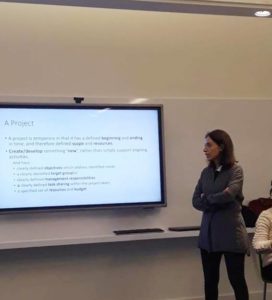
International migrations in Portugal: historical contrasts and contemporary dynamics, Asst. Prof. Lúcio Manuel Gomes de Sousa, Universidade Aberta
This lecture made clear that in order to understand migration (in terms of its patterns and consequences), it is important to review history with regards to this phenomenon, as history is very rich in incidents of migration and it provides countries with a set of approaches that were proven to be effective or ineffective in response to different patterns of migration. Taking the Portuguese case as an example, it explained that in countries which have many citizens as migrants in other countries, natives show more empathy, respect, and understanding towards migrants in their own country.
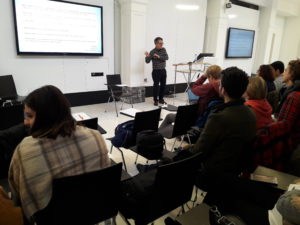
Complexity and the Governance of Migration and Migration-Related Diversity, Prof. Dr. P.W.A. (Peter) Scholten, Professor of Public Administration, Director of IMISCOE, Coordinator of Master Governance of Migration & Diversity, Editor-in-chief of Comparative Migration Studies, Erasmus University Rotterdam
This lecture focused on the nature of migration, integration, and migration policies. The mutuality of the integration was questioned through the usage of the term “integration”, the roles of the actors in the policy process and the complexity of the migrants’ social profile were investigated. Lastly, alienation and mainstreaming of migration issues were compared and their inherent dynamics were discussed.
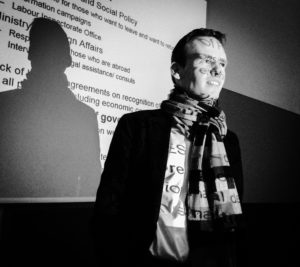
Turkish Migration in the Netherlands, Aytaç Yılmaz, Turkish Consul General to Rotterdam
This lecture explained the history of Turkish immigration in the Netherlands, including how it started, the phases that it has gone through, and its present, presenting examples of how Turkish migrants now play a big part in the economy and government of the country. The lecture also talked about xenophobia and xenophobic attacks.
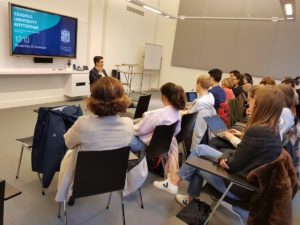
Reflection sessions with Project Coordinator Nilüfer Akpınar Şahin, Koç University
The Peace Envoys had a chance to have reflection hours every day to discuss their learnings and how their perspective has evolved during the workshop. The reflection hours also aimed at giving the Peace Envoys a chance to brainstorm about their future project ideas.
